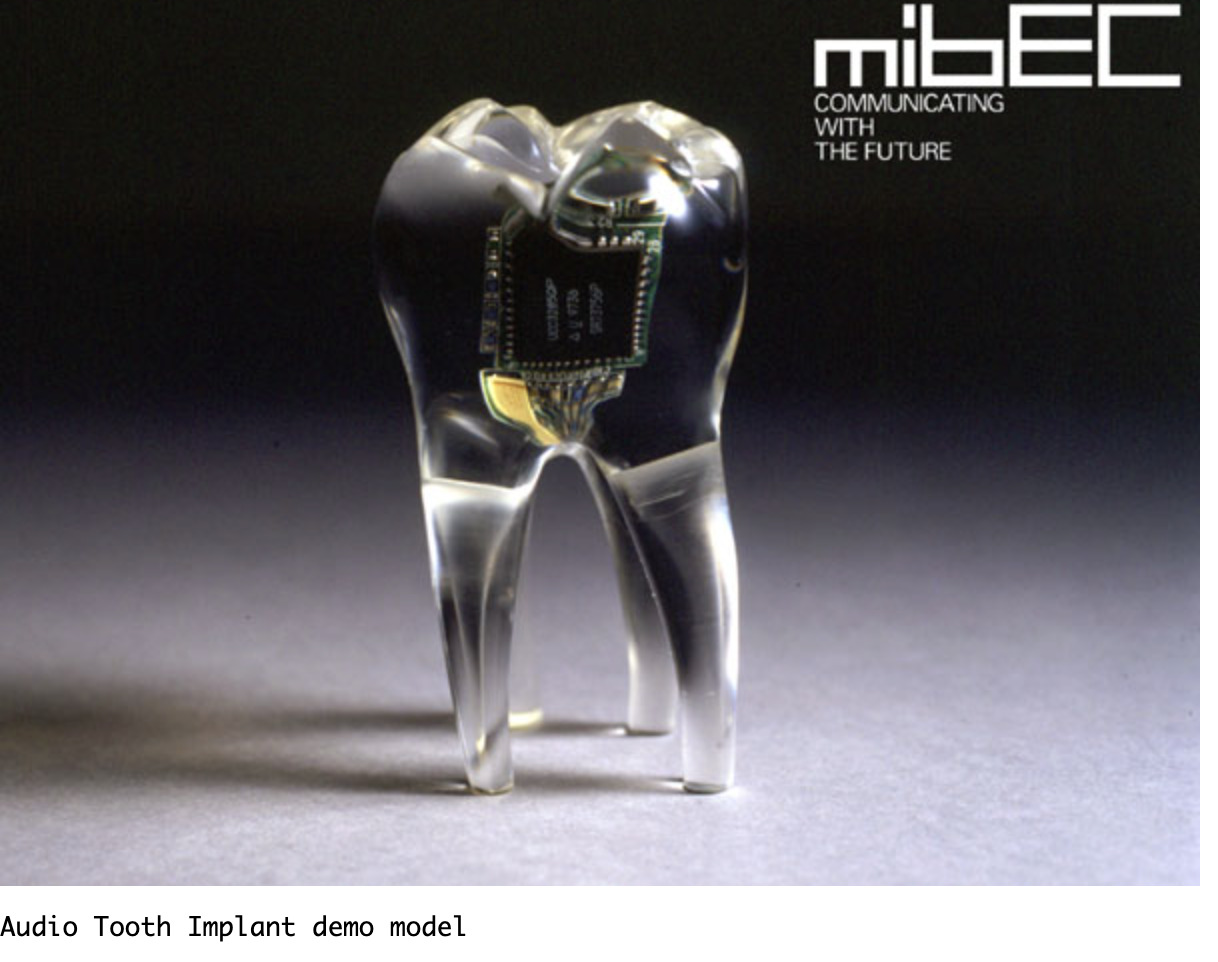Interview by Meritxell Rosell
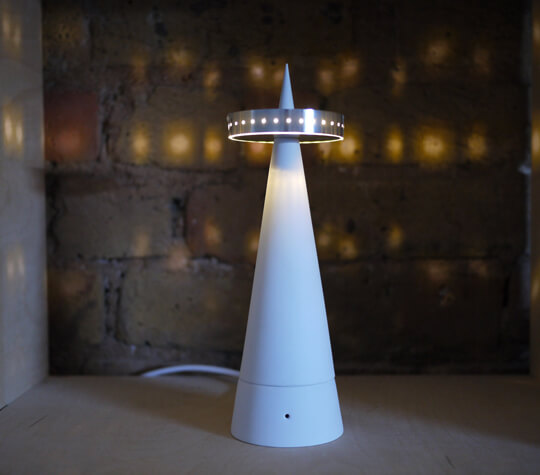
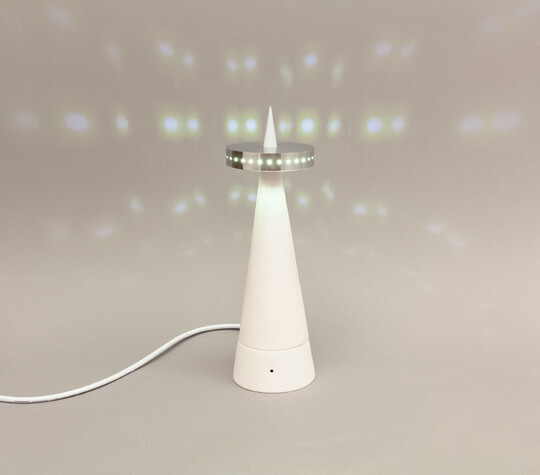
Speculative design, closely related to critical design, explores new roles for design in relation to the cultural landscape’s influence on existing and emerging technologies, allowing us to think about the future (speculative futures) or criticize current practices (alternative presents).
Devices that can predict a domestic argument or our partner’s emotional state, gadgets measuring in cosmic timescales, spy cameras that record the final journey of our ashes, re-imagined robots fueled by fly predation as the likes of carnivorous plants or a tooth implant capable of transmitting digital information from telephones and computers directly into our brains through our auditory system.
These and many other speculative fictions fill the world of James Auger, a designer, researcher and associate professor at M-ITI in Madeira, among others, whose works examine and question technology and its application in our everyday life.
Auger has collaborated closely with Jimmy Loizeau since they conceived the Audio Tooth Implant in 2001, which had quite a controversial media reception. Take an everyday object and a developing new technology. Combine them to incept a new conceptual product that challenges society with a contemporary and thought-provoking application: “These speculations are then used to examine and encourage dialogue on the impact a specific technology may have on our everyday lives.”
In Sublime Gadgets, the ephemeral banality of the gadget is transmutated by the incorporation of the romantic sublime, like the infinity of time and space or dealing with life and death, as if looking at those objects through the eyes of a 21st-century Lovecraft. Real prediction machines are a wink to the explosion of big data with a sprinkle of fortune-telling. Again the technological and the banal go hand in hand to produce a sublimated object capable of predicting when we are going to die or to be hit by an asteroid.
It’s tempting to wonder whether these designs will help us to break out of this tyranny of the probable, utilitarian, neoliberal techno-utopia, or are they just bringing us to another uber-intellectualized dystopia framed by a very specific faction of society, heir of the most inspired of the Ballards, Langs and Bradburys. One may say that their subversive and provoking work guides our collective move forward, not by pointing to an ideal final destination, but maybe by offering instructions along the way.
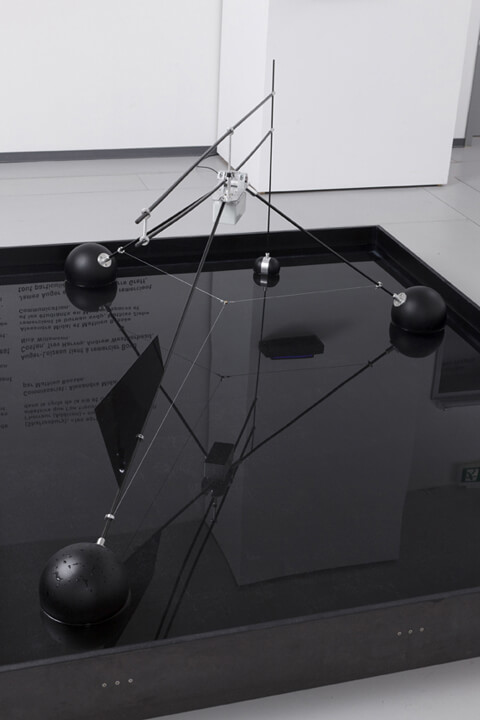
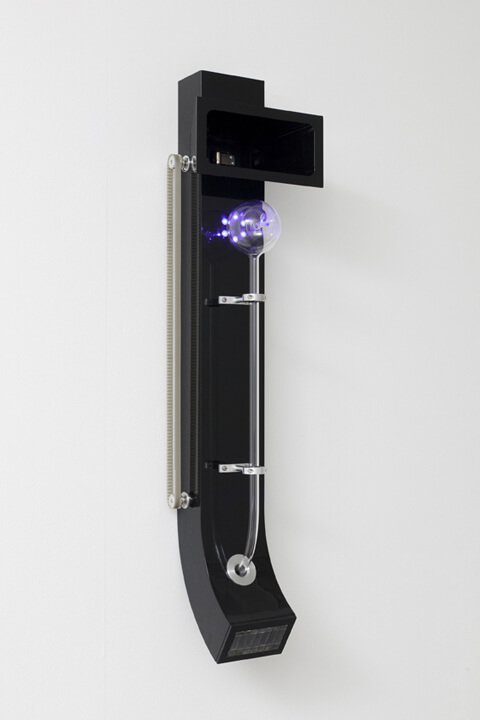
Your work is in the intersection of design and art; when and how did the fascination with speculative design come about?
James Auger: It is a matter of methods, motivations, constraints and semantics. Personally, I try to avoid labels and categorising – the word design itself is extremely problematic due to its promiscuity and blurred borders. Our approach is fundamentally practice based, the practice being very close to orthodox methods used in design (industrial, graphic); however, the motivations or purpose are closer to certain approaches in art. Speculative design is a fairly recent term that describes an approach we have been developing for nearly 15 years (for example, see our 2001 project Audio Tooth Implant).
Simply, we became interested in a form of design that can operate free from the constraints imposed on normative market-based models – constraints of economics, aesthetics, technology, politics, ethics and history. Relaxing or removing these constraints allows the designer to imagine new and alternative possibilities and to challenge established systems and roles.
You are focused on how technology and [design] products shape human behaviour: ‘Design becomes a tool for questioning rather than problem-solving. Is speculative design helping understand the role of technology/[designed] products in society, or is it challenging what society understands about them?
James Auger: Some time ago, I watched Adam Curtis’s excellent documentary Century of the Self, in which he describes the rise of Freud’s nephew Edward Bernays and how, in the 20th Century, he helped American corporations manipulate the masses into desiring things they didn’t need (by linking mass-production to unconscious desires). Design plays an important role in this process – making technology both usable and sexy and, therefore, desirable.
Technology is constantly evolving; this feeds change through product iteration – they become smaller, more capable, or more powerful through time; this is progress. The assumption is that progress leads to a better life, a dogma that governments and corporations have preached since at least the 1930s.
The notion of better was straightforward when technology solved simple problems, but things are becoming increasingly complicated as automation creeps inexorably into the most subtle and sensitive aspects of human life.
The speculative design aims to debunk the progress myth by showing how things could be different today (alternative presents) or how they might be in the future (speculative futures) – both aim to encourage contemplation and facilitate discourse on how we develop and apply technology, challenging these assumed notions of progress and hoping for a more considered idea of what we mean by better.
What are your aims as a speculative designer?
James Auger: My main aim is to practice and present a more responsible form of design, one that understands the implications of a particular technology, one that embraces the complexity of cultural, societal, technological and natural systems and how these interweave, overlap and contradict.
Once these systems are better understood, they can be challenged or optimised. A more simple aim would be to reverse the work of Bernays to encourage people to be less susceptible to advertising and sexy design.
If you had the choice of being born in any period throughout history, which period would you choose?
James Auger: It’s a tie between the 1500s and the 1960s.
What is your chief enemy of creativity?
James Auger: The current government in the UK. There is an obsession with markets, business, growth and numbers… the best aspects of life cannot be quantified.
You couldn’t live without…
James Auger: Sorry it’s a bit macho, but my motorcycles (which I am living without now as I broke my arm dirt-tracking 3 weeks ago).

